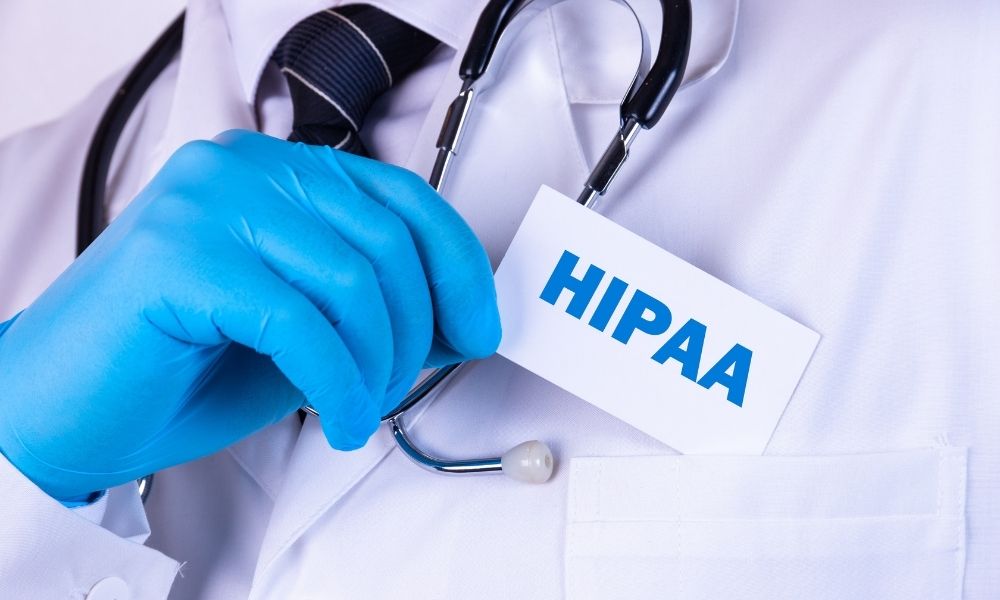The protection of sensitive data has become a priority for every organization in the modern age. Health Insurance Portability and Accountability Act gives strict guidelines to healthcare for the management, storage, handling and protection of protected medical data (PHI). HIPAA compliance for healthcare providers is crucial to maintain their image, safeguard patient privacy, and avoid penalization.

HIPAA encompasses every healthcare provider, healthcare plans, health clearinghouses, and business associates. PHI is any data that could be used for the purpose of identifying an individual. This includes addresses, names, credit card information, and social security numbers. PHI is a commodity that can be traded on the blackmarket for a premium price because of the use of it for identity theft.
The HIPAA Privacy Rule sets out guidelines for disclosure and use of personal health information (PHI). To ensure the security, integrity and confidentiality of PHI, covered entities must adopt policies and procedures. These policies and procedures should cover access controls and procedures for security incidents, security awareness training, as well as additional security measures. The entities covered must limit their use and disclosures of PHI to only what is required to meet the purpose to which they are utilized or disclosed.
HIPAA’s Security Rule requires that entities who are subject to the rule guarantee the integrity and confidentiality of ePHI by implementing reasonable and appropriate administrative and physical security measures. These safeguards include audit controls integrity checks, transmission security and contingency plans. The covered entities are also required to perform periodic risk assessments in order to discover vulnerabilities and put in place mitigation measures.
The HIPAA Breach Notification Rule requires covered organizations to inform affected persons and the Secretary of Health and Human Services, as well as, in certain instances media in the event of a breach of PHI that is not secured. The Privacy Rule defines a breach as the acquisition, use or disclosure of PHI not allowed by the Privacy Rules that compromises security or privacy. Companies that are covered must conduct a risk analysis to determine the likelihood that the PHI is compromised and the damage that could result due to the breach.
HIPAA compliance requires ongoing training and education for employees to ensure that they are aware of their responsibilities regarding patient privacy and security. Regular risk assessments are required for covered entities to discover any potential vulnerabilities. They must then implement measures to mitigate those risks. This could include implementing security controls, including encryption of ePHI and creating contingency plans in the event of a security incident.
In the modern age, technology has made a significant impact on virtually every aspect of life, including health. Electronic health records have proved revolutionary by enabling healthcare providers to store and manage the patient’s information in a seamless manner. This has created substantial cybersecurity risks and strict conformity with HIPAA is a must. Patients’ data should be secure at all times. The constant threat of cyberattacks on healthcare facilities implies that HIPAA is more critical than ever before. HIPAA can help ensure the privacy and security of information about patients, improving trust of patients with healthcare providers.
HIPAA compliance can help healthcare facilities protect patient privacy while maintaining the trust of patients. Failure to adhere to HIPAA regulations could result in substantial fines, legal actions as well as reputational damage. Office for Civil Rights of the Department of Health and Human Services is responsible for enforcement of HIPAA regulations. They can also investigate complaints and perform compliance reviews.
HIPAA compliance is crucial for healthcare institutions to ensure privacy of patients in the digital age. The regulations of HIPAA provide specific guidelines for how to organize, store and handle protected health information. Healthcare facilities should be sure that they have HIPAA-compliant policies and procedures, conduct periodic risk assessments, provide ongoing training and education for their employees, as well as conduct a regular risk assessments. As a result healthcare facilities can preserve their patients’ trust and avoid legal action.
For more information, click how does hipaa protect patients